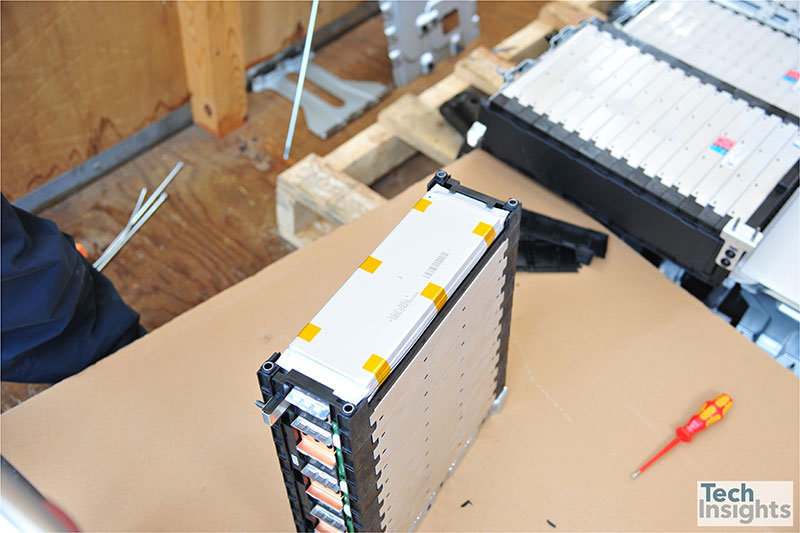Someone started
Pouch cells + No buffer: The underlying problem?. FWIW, Leaf uses pouch cells but from AESC and I know of no known fires caused by its batteries.
Nissan marks 10 years of LEAF sales, with over 500,000 sold worldwide is from Dec 2020. There are FAR more Leafs on the road than there are Bolts and Leaf went on sale Dec 2010.
I pointed to a table on page 26 of
Automotive Li-Ion Batteries: Current Status and Future Perspectives (Journal Article) | DOE PAGES (you have to click a green button) that lists some suppliers and formats. Renault Zoe uses LG Chem pouch cells it seems and per
RENAULT, LEADER OF EV SALES IN EUROPE - Newsroom Renault Group from Dec 2020, over 268K units have been sold.
Interesting video at
from
Pouch cells + No buffer: The underlying problem? about LG Chem's stacking and folding process described on page 6 of
https://www.energy.gov/sites/prod/files/2014/03/f10/arravt001_es_koo_2012_p.pdf.
I didn't realize this until the chatter there. I don't believe Leaf's AESC pouch cells having this folding at all. I believe theirs are just stacked.
I doubt the buffer has to do with it. Non-defective cells should be able to handle full charge (and discharge) just fine.
As for the cell design, LG claims their "stack and folding" method is patented, so I doubt the Leaf is using a similar design. The diagram in your video shows the LG method the best:
There's a deep dive here including a cross section of the cells and shows the entire cell/module/pack design:
A Review of the Chevy Bolt Powertrain | TechInsights
Key picture (cells are stacked more like library cards would be in a drawer):
Hyundai claims it was a folded anode tab that was the cause (this may be incorrectly translated), something that LG denies. GM says "combination of a torn anode tab and a folded separator". Perhaps this more accurately describes the potential problem.
You are right that the Zoe does use very similar looking cells (and module design is similar also). Do note however, it's using completely different battery chemistry and lower energy density:
Renault ZOE R240 Battery Capacity - 23.3 kWh Usable, 26 kWh Total
Initially I though that edge around the cells may be a sign of conventional laminated, but it seems that even LG's "stack & folding" cells in the Bolt and Kona have that edge (they just use tape to tape it down, you can see the 6 pieces of yellow tape doing so in the Bolt example).
As a sanity check, I looked up how long ago LG had this design, and even this article in 2010 mentioned it, so it can't be eliminated that the Zoe's cells might use this technique also:
"The company also holds a unique technology called stack and folding, which stacks the cathode, separator and anode and folds into a tight shape, preventing any kind of performance loss or deformations that competitors with winding methods showed."
Powering the electric car revolution
From here, the drawings for the Nissan cells suggest a conventional stacked and laminated structure, with no folding:
2018 Nissan Leaf battery technology, a deep dive
There's a deep dive here:
Nissan LEAF Teardown: Lithium-ion battery pack structure - MarkLines Automotive Industry Portal
Key picture and description here, the cells are sized more like a sheet of paper and stacked like in a folder.
The glued cell is shown being peeled off. The cell has a compact and simple structure called a laminate type cell, of which the thin film cathodes and anodes and separators are cut, stacked, and sandwiched with laminate film and then sealed.









